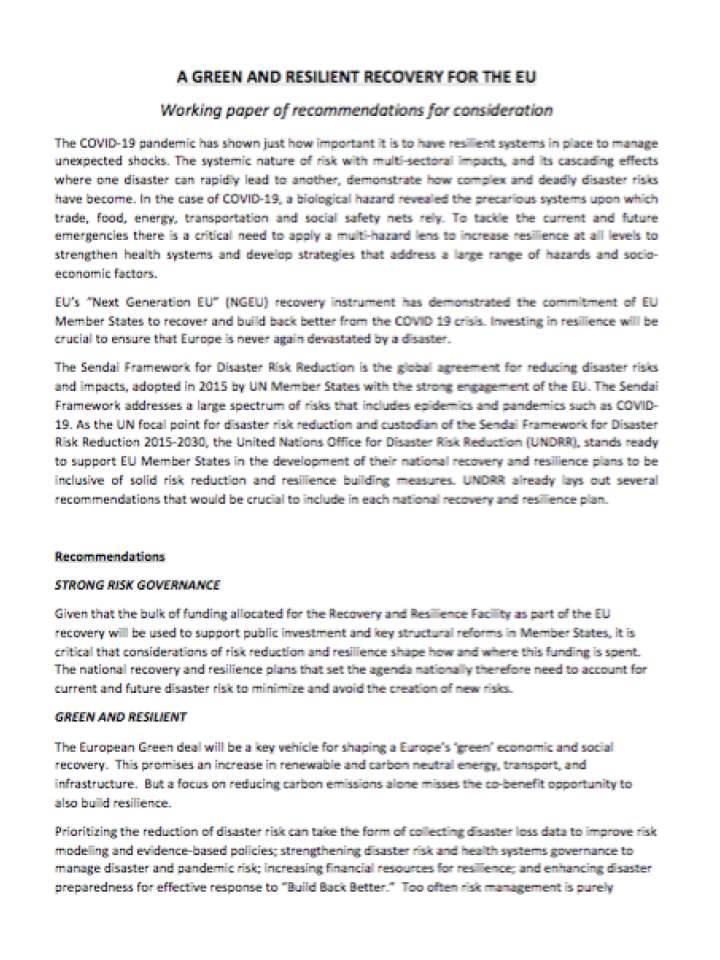A Green and Resilient COVID-19 Recovery for the EU: Working Paper of Recommendations
The COVID-19 pandemic has shown just how important it is to have resilient systems in place to manage unexpected shocks. The systemic nature of risk with multi sectoral impacts, and its cascading effects where one disaster can rapidly lead to another, demonstrate how complex and deadly disaster risks have become. In the case of COVID-19, a biological hazard revealed the precarious systems upon which trade, food, energy, transportation and social safety nets rely. To tackle the current and future emergencies there is a critical need to apply a multi-hazard lens to increase resilience at all levels to strengthen health systems and develop strategies that address a large range of hazards and socio-economic factors.
EU’s “Next Generation EU” (NGEU) recovery instrument has demonstrated the commitment of EU Member States to recover and build back better from the COVID 19 crisis. Investing in resilience will be crucial to ensure that Europe is never again devestated by a disaster.
The Sendai Framework for Disaster Risk Reduction is the global agreement for reducing disaster risks and impacts, adopted in 2015 by UN Member States with the strong engagement of the EU. The Sendai Framework addresses a large spectrum of risks that includes epidemics and pandemics such as COVID-19. As the UN focal point for disaster risk reduction and custodian of the Sendai Framework for Disaster Risk Reduction 2015-2030, the United Nations Office for Disaster Risk Reduction (UNDRR), stands ready to support EU Member States in the development of their national recovery and resilience plans to be inclusive of solid risk reduction and resilience building measures. UNDRR already lays out several recommendations that would be crucial to include in each national recovery and resilience plan.
Explore further
